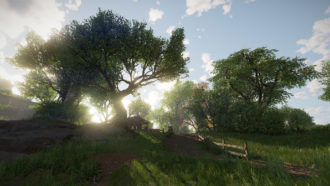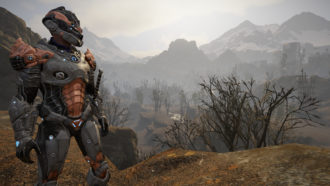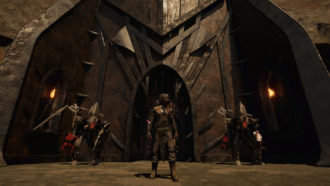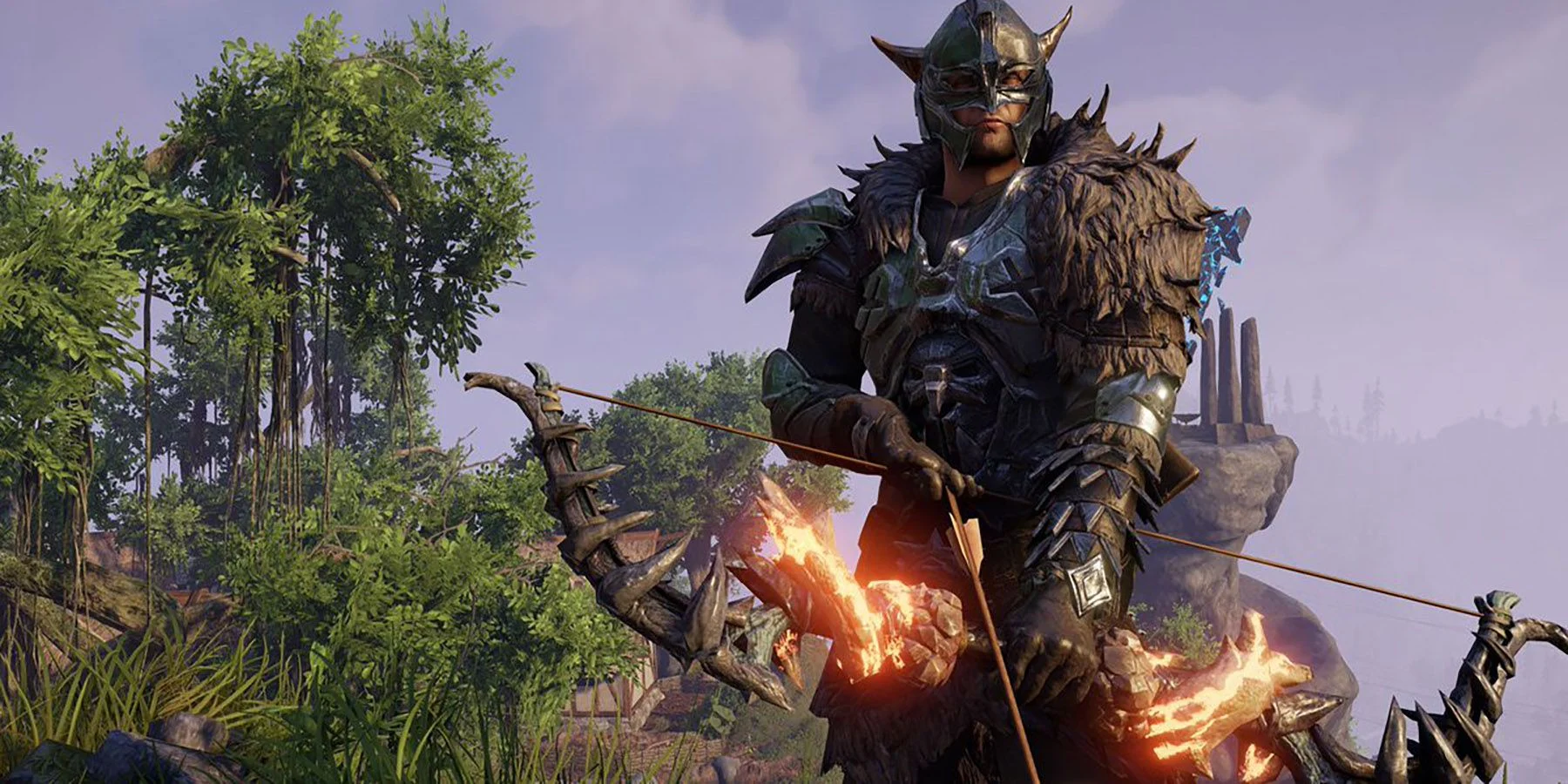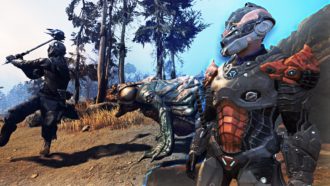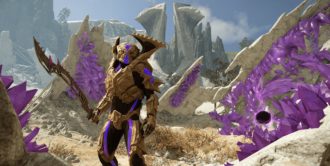Platforms:
Xbox One, PS4, PC, PS5, Xbox Series X|S
Released:
March 1, 2022
Publisher:
THQ Nordic
Developer:
Piranha Bytes
ELEX II falls into an odd category, an ambitious RPG from a beloved studio but lacks the polish and refined gameplay to go toe to toe with other recent examples in the genre. Instead, it feels like a relic of a bygone era. That is not to say it should immediately be dismissed – quite the opposite. The game will likely have its fans, but for casual consumers, it may not strike the same chord given its off-hand approach to quest giving and lacklustre combat.
ELEX II is developed by Piranha Bytes, perhaps best known for the Gothic and Risen series. Objectively Piranha Bytes can be categorised as a AA studio due to their small staff size and the general lack of a high budget and large corporate support that other AAA games benefit from. Though this does attract its own audience for sure, it means that ELEX II may not be for everybody, as it is quite rough around the edges.
You play as Jax (from the first game), who is now living out in the wilderness on his own before a new alien threat attacks the planet launching him into a new journey to save the world. I have not played the first title so there were some characters and story beats that were a little lost on me, but the game does put some effort into having prior events explained and covered enough for you to get a decent understanding. After being attacked by a new alien threat, you bump into Adam who is able to treat your new infection gained from a bite from one of the aliens. This is the beginning of your journey to expand the 6th Army – the new force to combat the alien race. From here, you set out to create a base of operations and find out intel on the other 5 factions in the world. Your end goal is to have some of them join your forces for an attack on the new threat to once again bring peace to the world.
Each faction feels unique, all having their own beliefs and way of surviving in the world, such as the Berserkers who are somewhat radical, believing in bringing peace to the land by forgoing technology coupled with powerful magic and a medieval approach. Outlaws are as their name implies, a group of people who have abandoned all laws and live only to fend for themselves. There are also the Morkons who live secluded underground, the Albs who prioritise laser weapons and energy abilities, and the Clerics who use high-tech robots. Each civilization feels separate from the others, not just location-wise but in how their town runs and how they initially receive Jax based on past history, whilst also offering unique bonuses and quests depending on your alignment with each faction.
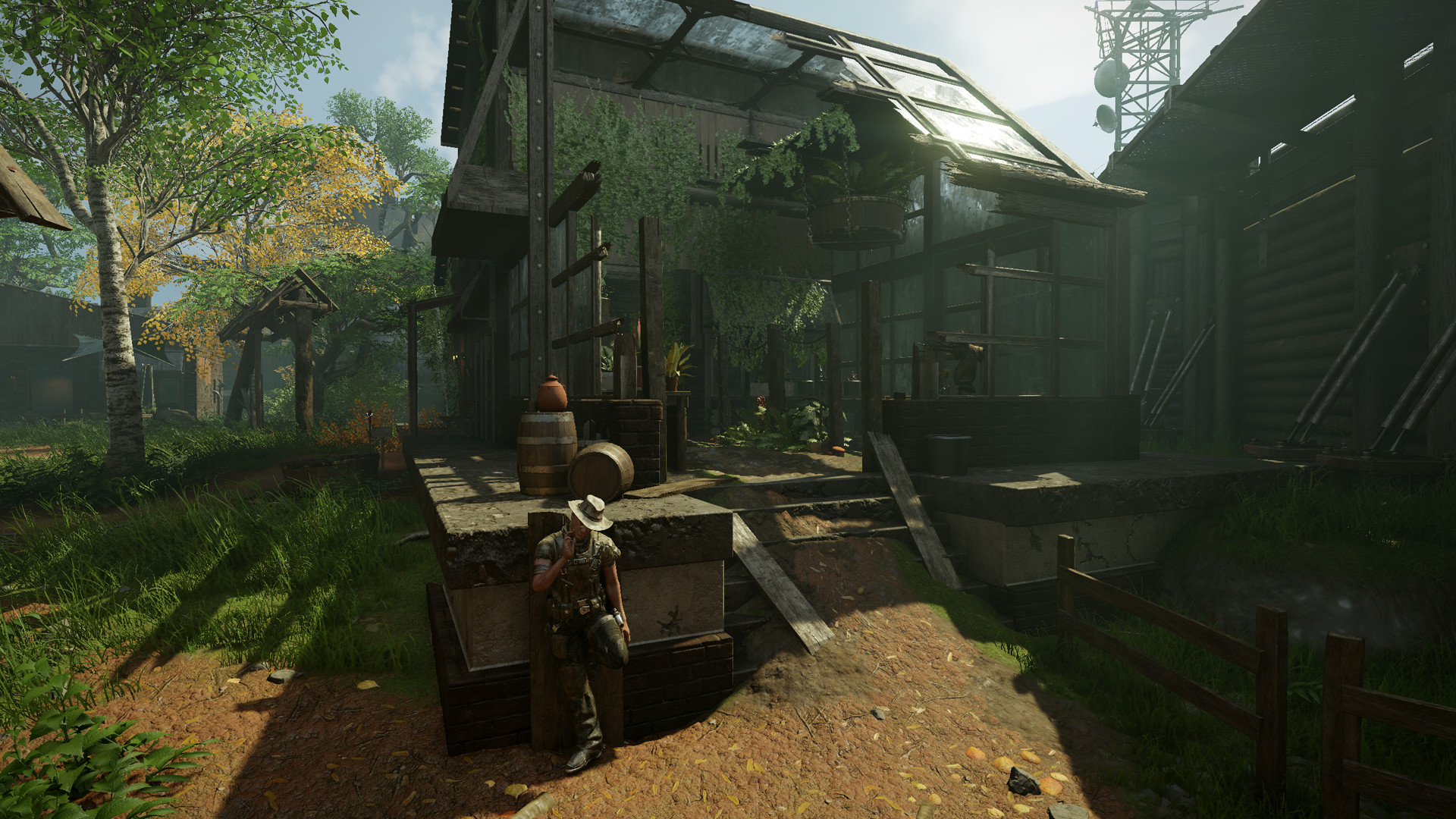
For anyone that hasn’t played the original or any other game from PB, the best way to describe the gameplay and overall feel of ELEX II would be to liken it to a game like The Elder Scrolls IV: Oblivion or more broadly an RPG from the mid-2000s. It understandably looks better than a 15-year-old game, but in terms of gameplay and adventure, it has a similar feel, often leaving you to your own devices rather than guiding you through the world from quest to quest. It does make use of a few modern touches and mechanics that improve the overall experience though.
Visually, this is nothing to write home about, they get the job done but don’t expect to be wowed by impressive pixel counts and cloth textures. They are enough to not be too distracting, but there are some recurring character models, muddy textures and glitches. The UI again is fine but sacrifices flashy visuals for a basic and straight-to-the-point approach. The inventory screen, character abilities, log, and map are pretty basic, offering enough to allow you to do what you need, but there are some problems that do get in the way here. The inventory management is woefully lacking in options to sort your equipment or easily equip necessary items, with the best option being quick slotting weapons, abilities, or items for use during gameplay, otherwise, you need to scroll through sections that only become longer as your inventory grows to get to what you need.
“…the game largely invites and forces you to think on your own, to find out where to go and how to achieve your goal, and to gather information from nearby NPCs first.“
We have become so accustomed to map markers, guides, tutorials, having the game tell us exactly where to go and what to do, that jumping into a game like ELEX II where you are almost let off the leash immediately is something instantly amazing. The beginning has a similar structure to Breath of the Wild in the sense that once you get through the initial introduction you can venture wherever you choose on the map to begin your grandiose journey with your main quest that eventually includes a large number of sub quests and side quests that intertwine with each other ensuring you visit the necessary areas. Each quest usually offers a unique journey but the general cycle does become repetitive. Whilst you can gain quests in the wild and from your companions, the basic approach is finding a new settlement, being given a tour and then interacting with various characters who will offer you quests, with at least one quest chain being tied to your main storyline to gain a character’s trust to fight beside you. You are on your own here though as rarely are characters approaching you to offer you missions, you need to speak to them first and interact with the town’s population instead of being spoon-fed, purposefully encouraging you to engage with characters.
There are a number of quirks that at the start frustrated me, such as the X button being both the jump and crouch action – with tapping it performing a jump whereas holding it toggles crouch – or that you cannot pick items up if your weapon is out. Some of these are very annoying, but I began to fall in love with some of these oddities as I continued to play. Items are not highlighted, meaning that items you can engage with will only become apparent if you are standing right next to them, and until you learn what are useful items you will spend a lot of time walking to every cabinet and crevice to see if you can pick up a potion, collectable, or crafting/upgrade component. This really frustrated me at the beginning but after a while, I actually enjoyed having to search the environment thoroughly myself instead of relying on a ping system to highlight things for me, although you can get a pair of glasses that will highlight items for you. There is a night/day cycle in action, but there is no real way to tell what time of day it is as far as I could tell, instead I relied on sleeping in a bed whenever there was a quest that could only be accomplished during the night.
The starting 5-10 hours do feel like a bit of a slog to get through. You have limited weapons and armour, you lack the upgrades and abilities that allow you to get around and take down foes with ease, and you don’t really understand much of anything in terms of crafting and items, so it does take some grinding with smaller enemies and quests at first. This is by design though, so it is a little harder to fault Piranha Bytes for this, just know that things really begin to open up after spending a bit of time in the world and everything kind of clicks into place, but this relies on you learning the map and characters, knowing where certain things are and what you are looking for. Once this happens (and you have the appropriate abilities) you will be crafting stronger weapons, creating healing potions, and taking down enemies larger than yourself with a little more confidence.
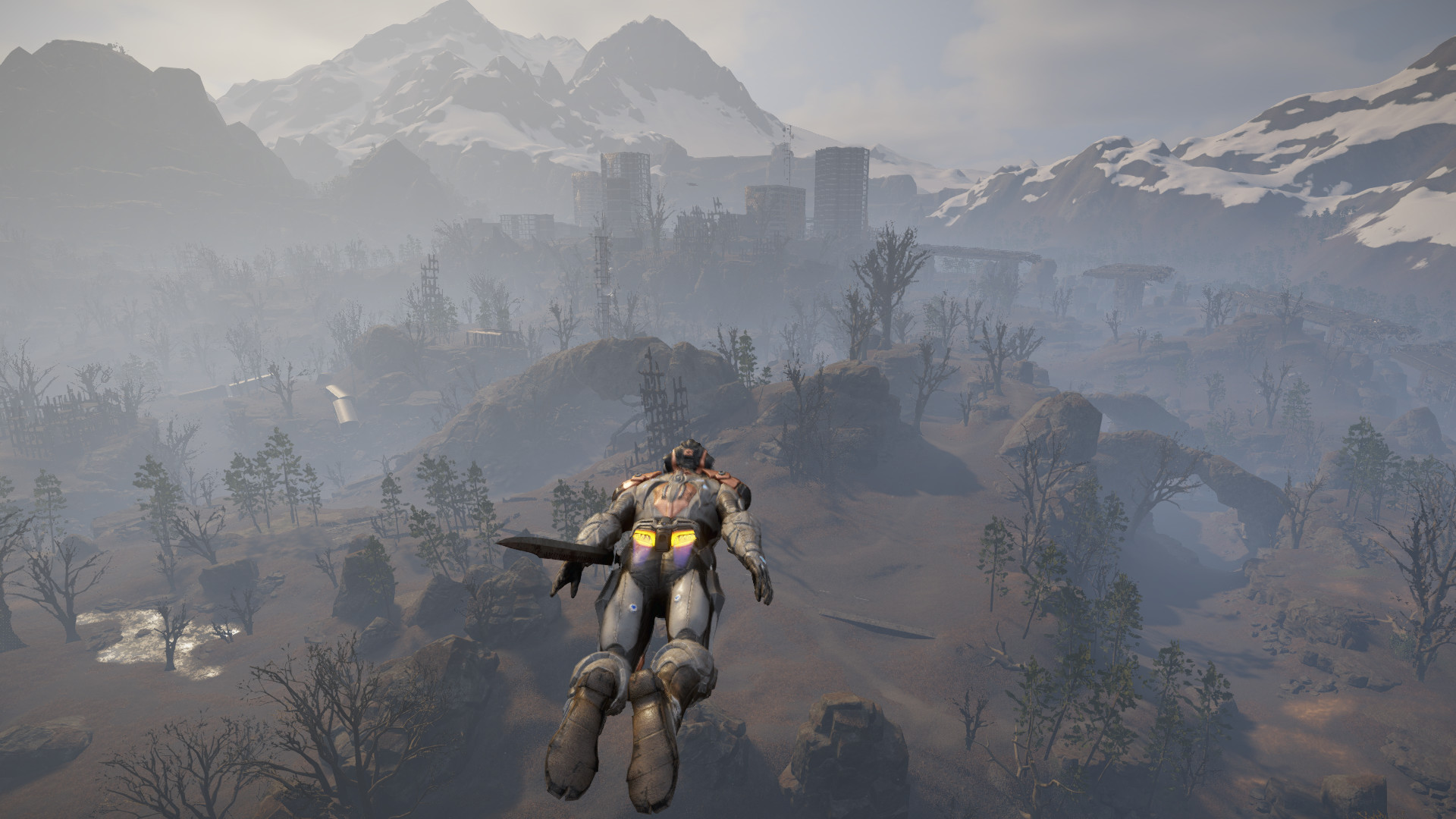
Traversing the map and finding quests carries a somewhat euphoric feeling of discovery. From the very start, the entire map is open for you to explore, with no real limitations apart from more difficult enemies in certain areas that force you to wait until you are at a higher level. The map is fairly basic; there are no abundant pins and markers to guide you on where to go or what is what, and this is another area that has ELEX II feeling like a decade-old game. You will generally only see a marker for the quest you have active, traders and characters you can interact with once found, and the teleport location. Even with this, the game largely invites and forces you to think on your own, to find out where to go and how to achieve your goal, and to gather information from nearby NPCs first. Very little handholding is provided here, instead, you are encouraged to explore for yourself which will reveal settlements, surprises, and fast travel spots. Furthermore, as I played this version on the PS5 there were no load times whilst roaming the world, fast travel is basically instant, and the only load times I experienced were during the initial bootup or if I died, but even these are insanely quick.
I came across one settlement where two NPCs were conversing near the entrance. They had no map markers or quests to give, and I couldn’t really interact with them. They mentioned amongst themselves that they were off to explore a crater they heard of. What resulted was literally me following two NPCs going about their business as they set across the map, killing creatures and enemies as they went. After around 10 minutes of this, I started to wonder if they were just in an endless loop, but eventually, they ventured into a settlement set within a crater that I was yet to discover. This was a pretty nice experience as I had no expectations and fully expected the NPCs to stop dead in their tracks at some point or simply disappear. But this moment made me feel like I was actually part of a living world.
Likewise, my interactions with other characters made for some unique and compelling conversations, ones which I felt like I actually had some control over in how they played out. Interacting with characters gives you the usual Bioware or Elder Scrolls list of response options, with each response you choose sealing your fate in one way or another with the character you are engaging. With this comes the usual wooden character animations and expressions, but knowing you have control over if they may end up helping you, hating you, or not giving you the information you are seeking is flawless. I had an incredible moment where I was being taken for a tour of a town and at each stop, the NPC would let me respond with a choice of continuing or exploring the shop or building he was showing me. At one point we stopped outside the local drinking hole, and after I responded with my choice to journey inside the NPC lightheartedly mentioned they would love a beer. I carried on with a quest I needed to complete in this building and remembered that NPC’s comment, so I bought a beer from the bartender. When I went back outside I presented the beer to this NPC which resulted in a notification that he liked this offering. What I wasn’t expecting though was at the end of the tour instead of taking money from me, he mentioned that as I got him a beer it was on the house. This felt like a pretty realistic interaction and one that I could have simply ignored had I not been paying attention.
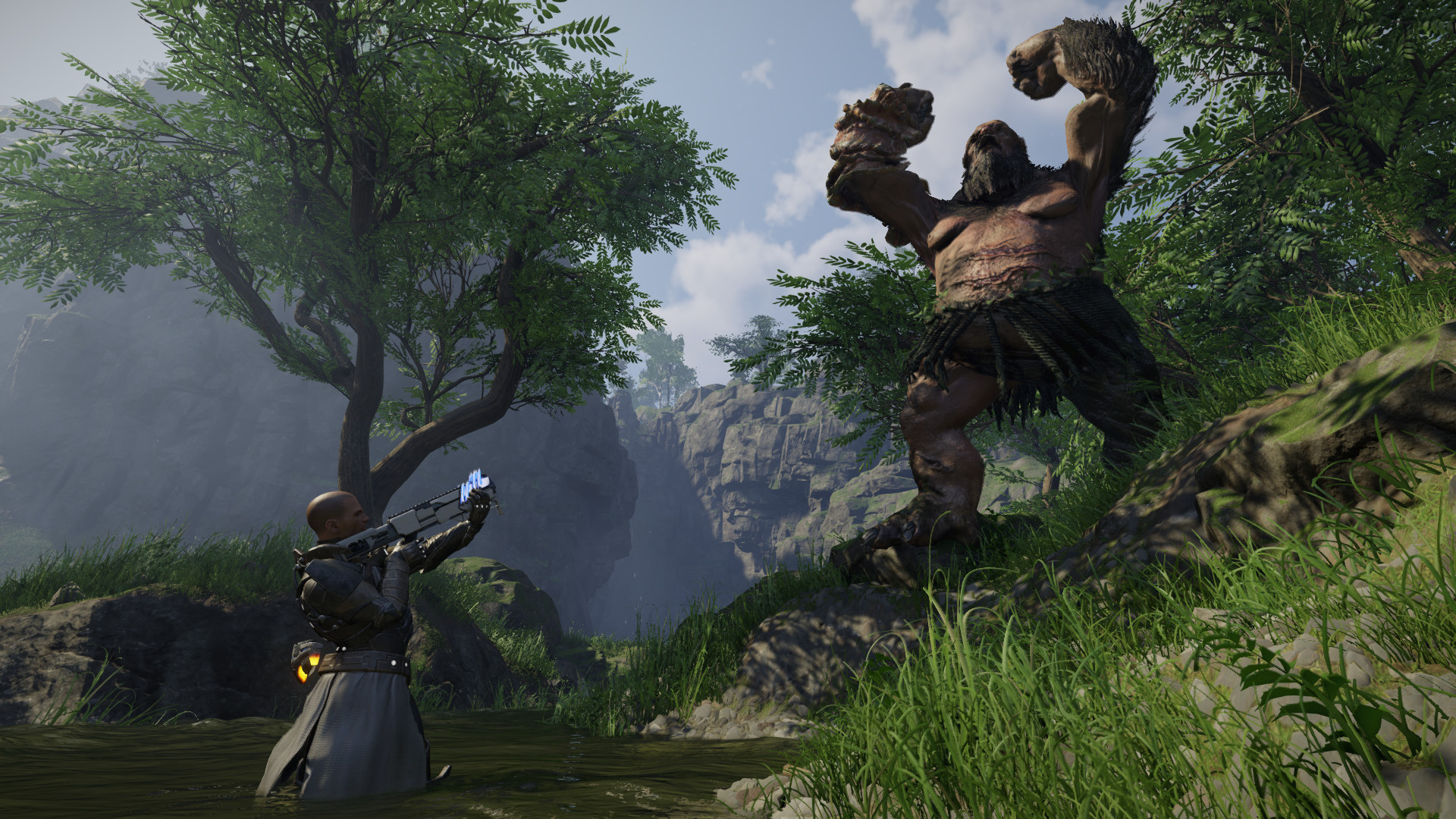
Speaking of characters, this is one of the strongest aspects of ELEX II. It took me right back to yesteryear where every character had their own personality, traits, and thoughts, where you could actually differentiate them not just from how they look, but how they will react to you. Furthermore, you have the ability to influence characters, being able to select your response options that actually have an impact on the world and how people will respond to you, shaping a unique journey based on your choices. It is very easy to have a conversation steered towards that character liking you and wanting to join your forces, or have them not like you and less likely to give you any further information or aid your quest.
I met Bully early on who at first I got along with, but I chose a terrible response option that led to him taking offence and fighting me. I subsequently chose each response carefully as I knew that the impacts of my choices would carry heavy consequences down the line both during my journey and with the multiple endings that are achievable. Bully eventually warmed up to me as he was tasked with watching me by his boss, and during our travels, he changed his mind as I aided him in battle and with his own little quests. Each faction and their characters really do feel like they have their own thoughts and are not just there to spout exposition and leave. The dialogue itself is nicely written, entertaining, and gives just enough to keep you interested without tiring you out. Voicework though is hit and miss, with most of it being serviceable and never becoming irritating, but there were a few wooden performances littered throughout.
In terms of actually getting around the large map, you are fairly limited but ELEX II has a unique mechanic up its sleeve. There are no vehicles or mounts to make traversal easier or faster. Instead, most of your time will be spent running between locations and to quest locations on foot, but you are gifted with a jetpack from the get-go that provides a modern touch to the otherwise basic traversal on offer. At the start, the jetpack is fairly limited in range and features, though this can be upgraded as you progress allowing for longer and faster flight time. It may seem trivial, but the addition of the jetpack does provide for a better sense of exploration. I could scale mountain tops, go almost anywhere that I could see, furthermore if a settlement was higher up I could just use a combination of my jetpack and climbing to get to the entrance instead of taking the long and winding path. It isn’t anything game-changing, but the feeling of flying into the sky or seeing a tall structure and floating up to the top to see what goodies were hiding was never lost on me.
Combat is fairly basic offering the usual assortment of light and heavy attacks, dodge/roll, and blocking, which all has a fair amount of jank and a lack of polish to it. It just never feels impactful or super engaging, especially during the early hours as you are fairly limited by the weapons you can wield until you level up much further. I found I had the same sword equipped for a number of hours as most of the weapons I came across had hefty level stats to be equipped. Once this happens and you gain access to better weaponry and skills it does get much better, but the overall feeling of combat still feels rather sloppy. For melee weapons you basically just whack your enemies until they are dead, there are no combos or in-depth mechanics here. Ranged attacks feel floaty and lack weight, an option I admittedly didn’t use a lot because of this. I ended up joining the Berserkers and was able to launch fire-based attacks with decent damage, so this quickly became my go-to attack. The combat did give me flashbacks of Oblivion in the way my character would simply wave around their weapon at the enemies dealing damage, never giving me the impact and response that my hits were connecting (even though they were).
With each level gained, you are rewarded with two types of points. Attribute points that you put into standard attributes like strength, intelligence, dexterity, and intelligence, influencing your character’s ability to wield certain weapons and abilities. The other point is learning points, which allow you to gain unique perks to increase things like lockpicking, hacking, magic and abilities, your jetpack, and other useful areas. These are given out by specific teachers in the world that you will first need to discover during a conversation. After which you can use your learning points to have them teach you new abilities, again rewarding exploration and interaction with the world as opposed to just letting you fill out a skill tree whenever you feel like it.
7.5
Good
Positive:
- Well-realised world filled with unique characters and places to explore
- Engaging and fleshed out dialogue that makes characters feel alive
- Sense of euphoria when discovering new things on your own
- A world and story and that can be altered depending on your actions within it
Negative:
- Wooden character interactions and animations
- Visual fidelity and refinement of certain mechanics can feel lacking
- Combat is not as engaging as it could be
Despite some weaker elements, everything combines nicely in ELEX II to provide an unpolished journey, but one that I was thankful I experienced. The game is rather unique, with some modern touches and attributes. Yet at the same time, if you played this game without knowing anything about it, you could mistake it for something from over 10 years ago. It has a unique charm, and if you are willing to put up with some janky combat and odd glitches, there is certainly an engaging story to follow with exceptional dialogue and choices that really seem to alter the world around you. ELEX II takes you on a long journey filled with meaningful engagements and a world teeming with character.
